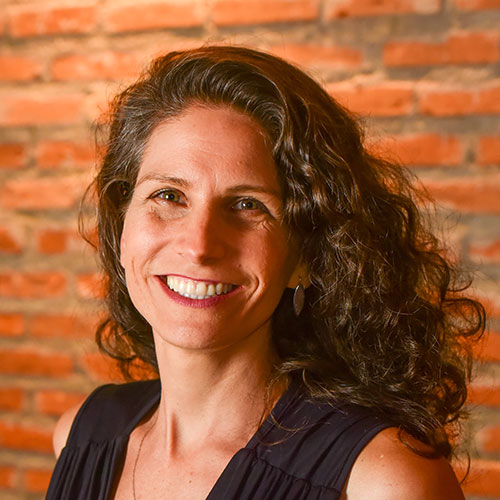Combating gender violence needs to include women and girls with disabilities
Movimento Inclusivass fights for rights and strengthens the debate on gender and disability.
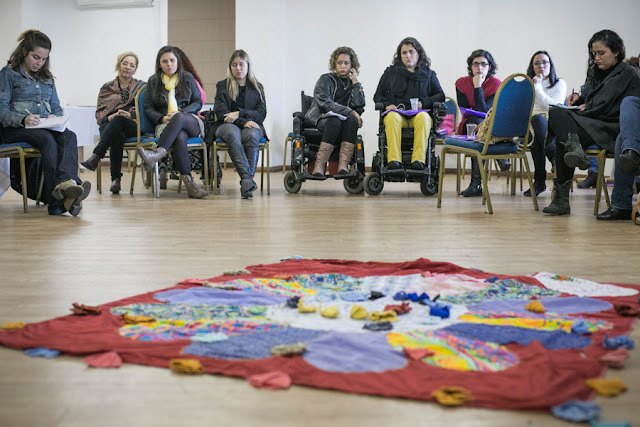

Women and girls with disabilities are the main victims of domestic violence in Brazil. The numbers are alarming: according to SISAN data, they are three times more affected than non-disabled women and represent 61% of cases among people with disabilities. However, there are few actions and public policies to combat gender violence aimed at them.
To give visibility to the problem and guarantee rights, Movimento Inclusivass launched the Guide to Combat Violence against Women and Girls with Disabilities. The guide brings a series of information about the different forms of violence and indicates the best ways to combat and report aggression. Mainly, it helps victims to identify that they are being violated.
According to Carol Santos, founder of the movement and one of the creators of the guide, many women find it difficult to recognize that they are suffering violence. This happens because often the aggressor is the victim’s only caregiver. Women may also feel guilty about the violence or fear for their safety and that of their children.
In addition, when they recognize that they have suffered violence, they encounter barriers in the coping network to report it. The difficulties range from the lack of accessibility in the police stations to the unpreparedness of the servers in receiving the complaint. Disabledism, above all, disqualifies and stigmatizes these women.
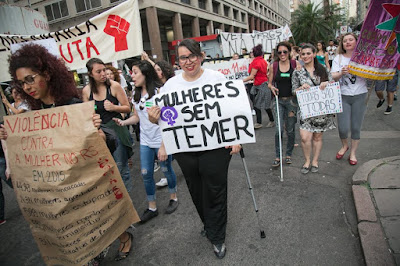
Anti-capacity struggle
Capabilityism is the name given to prejudice against people with disabilities. This prejudice stems from the mistaken notion that associates the ability to work, study, or even affectively relate or care for others, for example, with the structure of the body.
When we say that someone is able-bodied, therefore, it is because they tend to believe that people with disabilities are incapable and inferior. In Brazil, according to IBGE data, there are 19 million people with disabilities. Capacitism is the main factor that makes it difficult for these people to guarantee their full citizenship.
When it comes to gender violence, then, ableism makes bodies with disabilities even more vulnerable. According to Carol, “many think that women and girls with disabilities are asexual, on the other hand, they believe that these bodies can be violated”. For this reason, she explains, it is important that gender and disability be taken into account when claiming demands and proposing coexistence alternatives.
“Recognizing yourself as a woman and then as a woman with a disability is fundamental in this process”, says Carol. She herself took a while to realize the importance of this. Carol is a survivor of femicide. Even though she was here to tell her story, like most people, she too had a tragic ending.
She was with her partner when they were shot by Carol’s ex-boyfriend. The partner died and she became a wheelchair user. For years, she blamed herself for this. Only after coming into contact with feminism, she recalls, did she realize that she had no responsibility for what happened. In fact, she was the victim of a crime marked by misogyny and machismo.
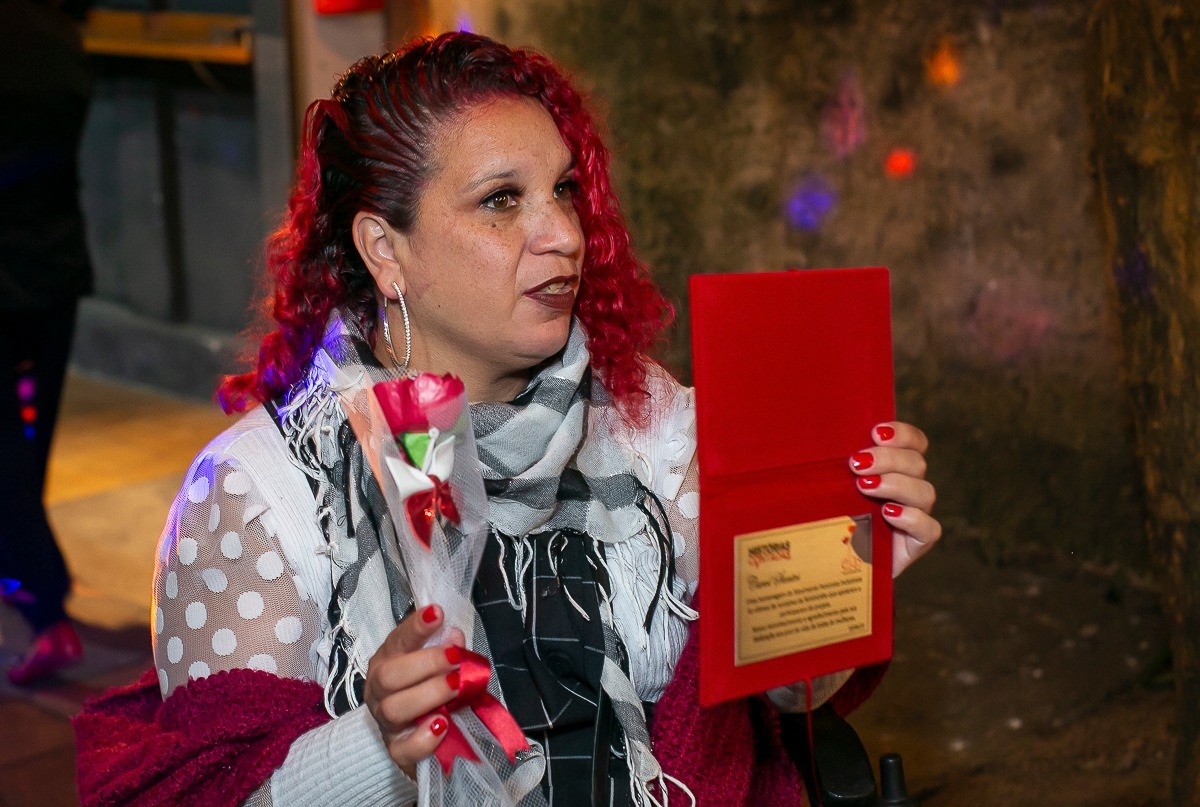

Bodies in dispute
Women and girls with disabilities suffer daily micro violence to the detriment of gender. There is from the prejudiced judgment that a disabled mother cannot take care of her own children to the distorted view that someone would never be able to commit an act of violence against them because of their bodies. As Carol recalls, “the social role that falls to women with disabilities is that of being cared for, not caring.”
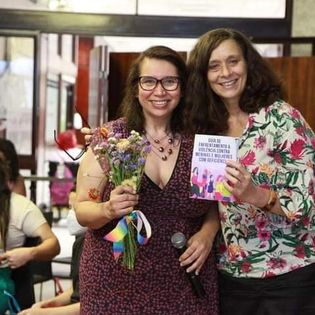

Capacitism, once again, hides the scope and impact of this violence. People with and without disabilities are equally human, warns Carol, and may have attitudes that are not always ethical and complacent. A man with a disability, for example, can also be violent. Likewise, a woman with a disability is not protected against aggression because of her condition.
State violence, emphasizes Carol, also has an impact. The lack of public policies that contemplate this debate is notorious and can be easily diagnosed by the invisibility of violence against these bodies and by the difficulties of inclusion and accessibility across the country.
With that in mind, the Movimento Inclusivass also launched the Anti-Disability Mini-Dictionary with a Gender Perspective. The document innovates by warning about prejudiced statements and attitudes in everyday life and providing guidance for feminist and anti-capacity education. One of the entries, for example, says that treating these women as heroines or examples of overcoming difficulties is not the same as having empathy for them.
Comments like these, despite seeming kind, actually hide the barriers that these women have to face due to the lack of public policies that guarantee the same opportunities for them in relation to the rest of the population.
Told Stories
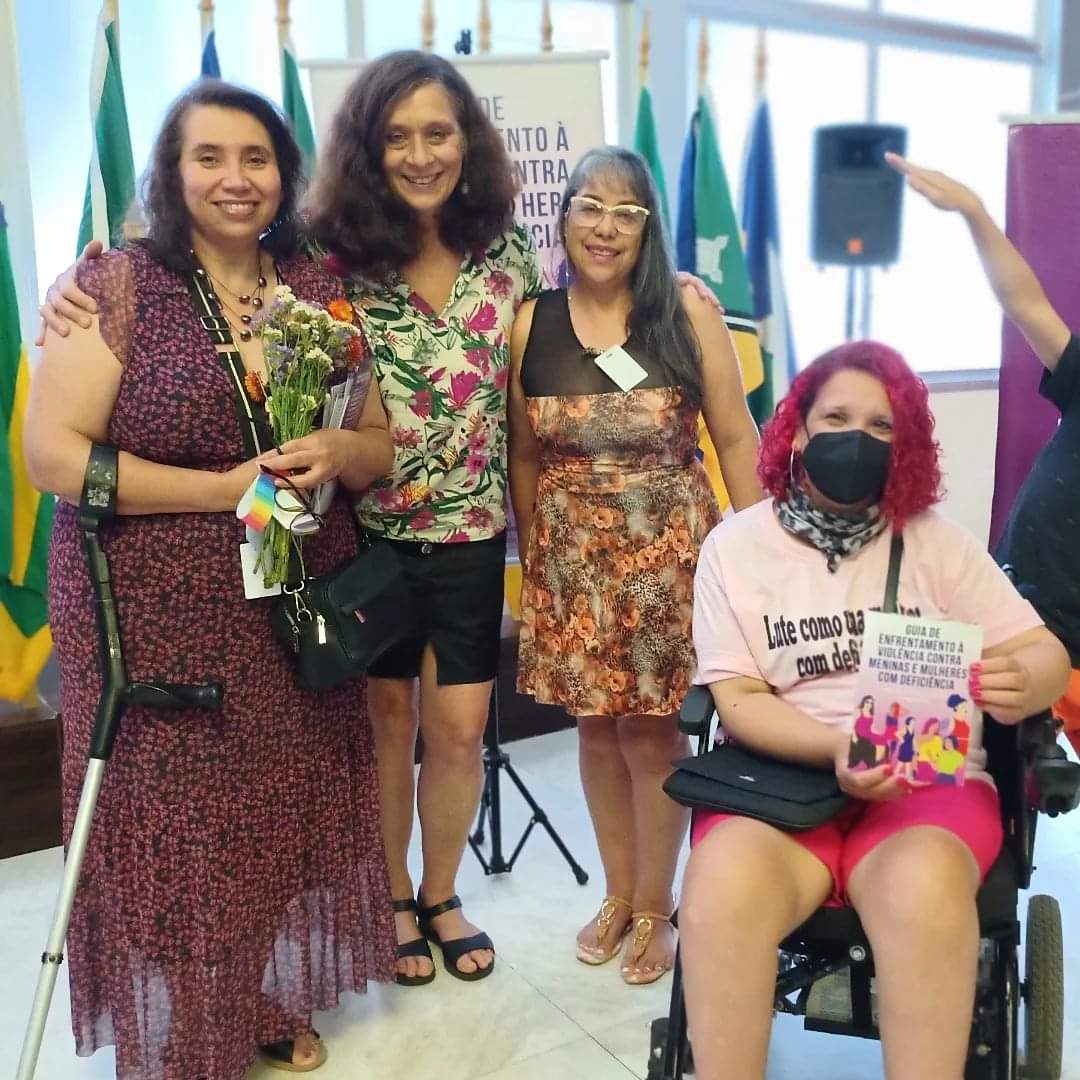

“We are part of the universe of people with disabilities, but we are women, and when we talk about a woman with a disability, we know all the baggage we carry,” explains Carol about the importance of the discussion raised by the Inclusivass.
The collective currently has six members and has been receiving support from philanthropic and private entities focused on women, such as Fundo Elas+, which since 2016 has supported projects created by the movement. The Avon Institute was also an important partner, supporting the collective’s first project. In addition, Carol is an Avon reseller and has become an ambassador for the Institute in combating violence against women. She also competed for the Inspiradoras Award, in 2021.
Carol’s life story has been documented in a film and serves as a starting point for many of the collective’s actions. The most recent is the Told Stories project, which features testimonies from femicide survivors. “Many survivors become women with disabilities, as in my case. And being in this place of survivor brings us invisibility. I survived violence and continue to suffer violence to this day, by society, by the state, this in the 21st century!” Carol laments.
Femicide is a crime committed against women, motivated by domestic violence or gender discrimination. Most of these crimes are perpetrated by men who live or have lived with the victim, being boyfriends, sexual partners, or husbands. And when a woman survives femicide, it has a profound impact on her personal life, causing permanent trauma, warns Carol.
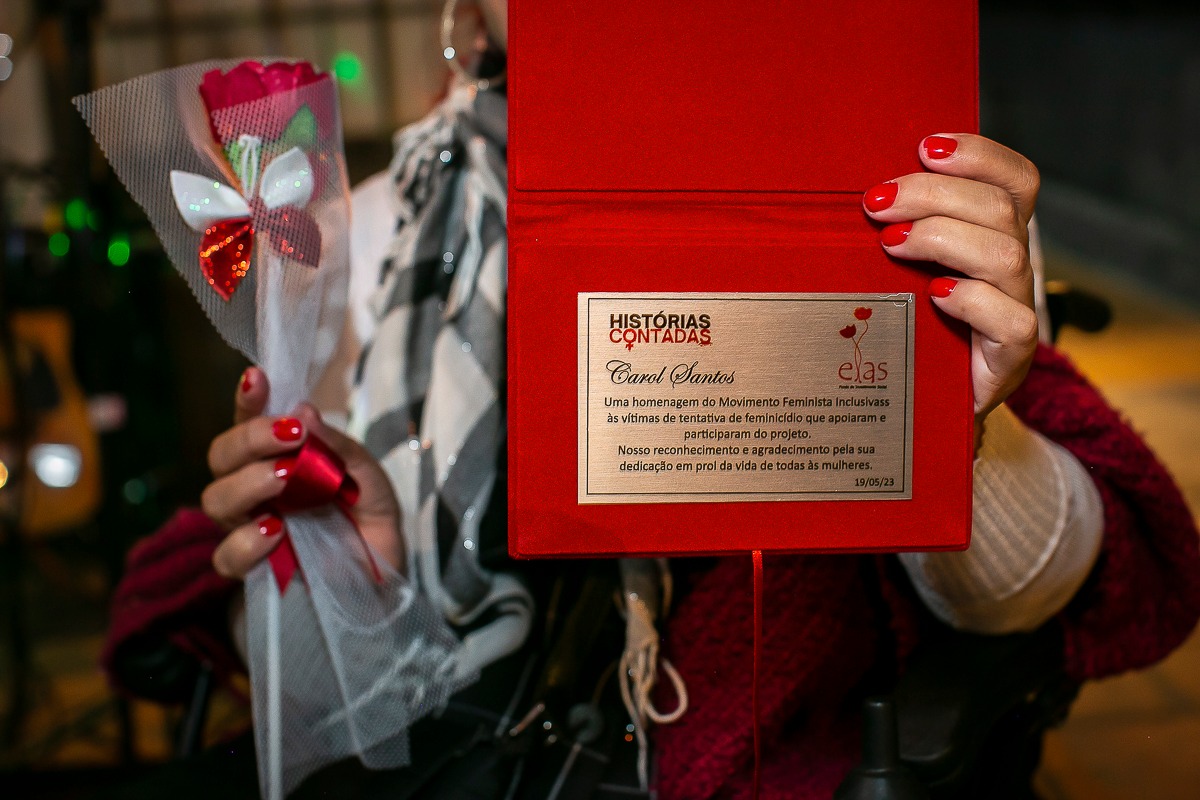

Feminicide and the fight against domestic violence
Surviving an attempted femicide causes physical damage, with scars and permanent marks on the victims’ bodies. But, in addition, there is the invisible damage, which can be psychological and emotional scars, marking these women’s lives forever. The survivors of femicide thus live with self-depreciation, the feeling of abandonment and the fear for their own lives and for the lives of new affective partnerships and sons and daughters.
The survivors also have to deal with several lacks: adequate reception, shelters and free specialized therapeutic care, regardless of their social situation, says Carol. For her, the state fails because it cannot support these women, and the social movement ends up playing that role.
The Told Stories project, therefore, is pioneering in shedding light on the traumas left by domestic violence, especially femicide. The project also maps out women’s organizations in the state of Rio Grande do Sul that provide assistance in these cases. The expectation is to release a book with this mapping and the testimonies soon.
The book will feature a foreword by Márcia Tiburi, a partner of the Movimento Inclusivass for the Feminist Uprising Against Femicide, which recently included femicide survivors as part of the debate to be included. Thus, Carol shows that she is not intimidated by her trajectory. On the contrary, activism takes a central place in her life. “We are still going to write the strand of women with disabilities in the feminist struggle,” she concludes. So be it!
Want to support this cause?
Visit the Movimento Inclusivass website.
Follow social media on Instagram and Facebook.
For more information, send an email to inclusivass@gmail.com.
To speak with Inclusives: +55 (51) 993194525
